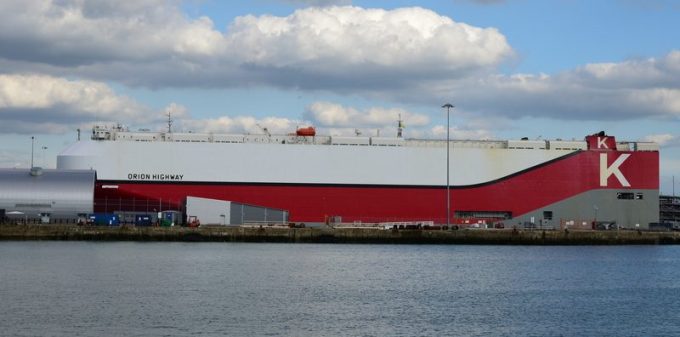Yang Ming launches fleet expansion plan after profits soar
Taiwan’s Yang Ming is bullish about long-haul ocean freight rates as it embarks on fleet ...

Car-carrier lines NYK, K-Line and MOL finally halted Red Sea transits last week, with the latter introducing a new emergency risk surcharge.
The Japanese compatriot carriers had been some of the major Red Sea holdouts, preferring to risk transiting the contested Bab Al-Mandeb Strait rather than going around the Cape.
Pure car and truck carriers (PCTCs) are infamously liable to capsize in strong winds, thanks to their low stability, high walls and susceptibility to the free ...
Maersk Air Cargo sees volumes fall as it aims for 'margin in favour of revenue'
Keep our news independent, by supporting The Loadstar
Container spot rates diverge: to Europe still falling, but firmer to the US
Hapag-Lloyd won't take bookings if port congestion leaves cargo stranded
Ecommerce likely the front-runner in resurge of transpacific trade after deal
Airfreight players eye new routes as demand on the transpacific nosedives
China-US trade tariff pause could drive a rebound for transpacific rates
Service chaos from trade ban with India a problem for Pakistan shippers
Airfreight rates ex-China 'loss-making', but hopes of a trade deal stay high
Indian coastal freight attracts major carriers, but regional tension disrupts
Serious threat to jobs in US logistics as tariffs cause economic 'stagflation'
APMM floats along on 'solid' Q1 profitability in Ocean, well prepared for choppy water


Comment on this article
David Broadhead
January 17, 2024 at 7:05 pmGreat article thanks but here’s my question; how is insurance going to work for a ship which may not have been designed for Cape transits with a crew that may or may not have any experience taking it – or possibly any other vessel – on that route? Hopefully I’m missing something….